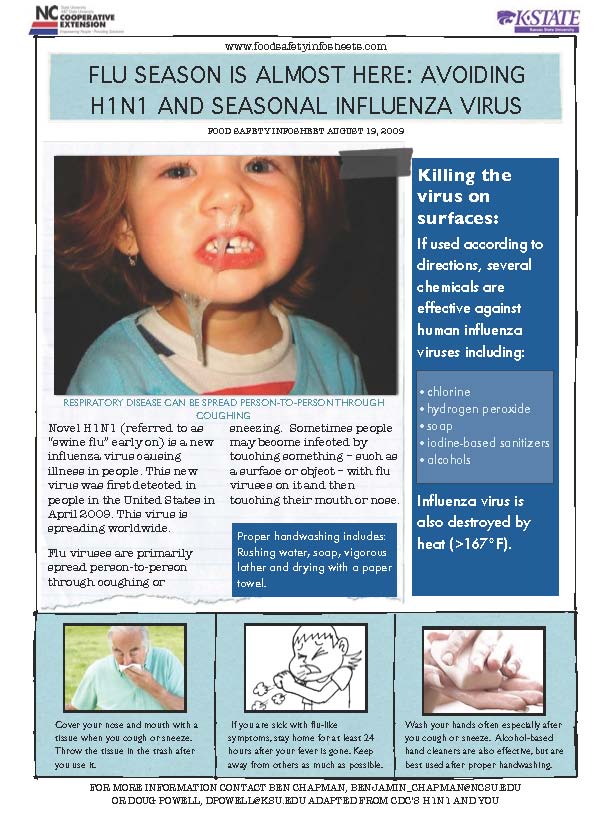And she’s a Trump advisor.
Tag Archives: Flu
Flu-like Illness hits Illinois church
I lost my passport. God hasn’t found it yet. I’m stuck in Dallas.
I blame the Catholics.
While flying from Manhattan to Dallas last night, on my way to Brisbane, my passport was misplaced. Thirty years of international travel and I do the one thing you should never do – lose a passport. I was having a pleasant enough chat with a fella who was telling me why  Catholicism was the best of all religions; I was trying to be polite, and said I primarily viewed religion as a spectator sport – at least for me.
Catholicism was the best of all religions; I was trying to be polite, and said I primarily viewed religion as a spectator sport – at least for me.
Most food safety is faith-based, and the lord wasn’t shining so bright on about 40 parishioners at Spring Lake Missionary Church who were sickened over the past two weeks.
The Pekin Times reports the Tazewell County Health Department is investigating the outbreak.
Kim Gudzinskas, the department’s weekend on-call nurse, said she only knew that no final determination has been made on the possible source and exact nature of the virus. Further information may be available today, she said.
Lacey said the illness was first noticed about two weeks ago. While he knew of no one hospitalized, the illness’s symptoms were strong.
Health department investigators told church members the illness possibly spread through both contact with a germ-laden surface or person and through the air.
I was having enough trouble learning Australian; now I’m gonna have to learn Texan.
Nosestretcher alert: CNN don’t know crap about food safety
CNN was at least bearable in the morning when newscaster J.D. ‘John’ Roberts was picking tunes to accompany stories, building on his early VJ years at Toronto’s MuchMusic.
Today, Atlanta’s Cable News Network has descended into a ridicule-worthy target, no better than Fox.
In a piece about the stomach flu, Kate Rope of Parenting magazine, who is apparently stuck in the 1950s, says that food poisoning “usually hits pretty quickly after eating the food in question (did  Chloe have potato salad at that afternoon’s picnic? Did Ben scarf down the rest of the tuna sandwich that had been sitting on the counter for a few hours?). Though it may come with fever, it often doesn’t, and it usually goes away pretty quickly.”
Chloe have potato salad at that afternoon’s picnic? Did Ben scarf down the rest of the tuna sandwich that had been sitting on the counter for a few hours?). Though it may come with fever, it often doesn’t, and it usually goes away pretty quickly.”
Tell that to the 26 dead folks who wanted some cantaloupe and got listeria – which can take weeks to develop.
Herpes, hepatitis A, swine flu — beer pong transmits disease?
No beer pong? What is college life without beer pong?
 Last year, some publication at the University of California at Los Angeles – UCLA – warned students that beer pong, a communal drinking game, could be a source of infectious disease like herpes.
Last year, some publication at the University of California at Los Angeles – UCLA – warned students that beer pong, a communal drinking game, could be a source of infectious disease like herpes.
The N.Y Times reports tomorrow that students at Rensselaer Polytechnic Institute in Troy, N.Y., are being asked to refrain from playing beer pong after an outbreak of illness that officials feared might be swine flu.
The story notes that what used to be O.K. is not anymore, as the flu has ushered in new standards of etiquette that can be, in turns, mundane, absurd and heartbreaking.
Heartbreaking and beer pong. College life is tragic.

Cold prevention kit nonsense
In the anything-to-make-a-buck category, it’s the cold & flu prevention kit: Kleenex, antimicrobial wipes, soap and some other stuff, all conveniently wrapped in additional plastic.
Gonzalo, a student who works with me, snapped this shot at a local supermarket last night.

Air kissing or ‘la bise’ discouraged in France because of H1N1 flu
It was so confusing when I was in France: do you kiss anyone on the cheek or just friends; two pecks or three (the further south, the greater the frequency of the tri-peck). I usually defaulted to a handshake, but after a fabulous lunch with tons of great wine at a chateau near Bordeaux where I had unlimited Internet access for the first time in two weeks, I gave the dude a bi-peck at the train station – we had just met, and he was a little taken aback (that’s me and the dude at a wedding in Montreal a couple of months later 2007, right, below; look at that suit).
Now, according to Associated Press, the French tradition of "la bise," the cheek-to-cheek peck that the French use to say hello or goodbye, has come under pressure from a globalized threat: swine flu.
Some French schools, companies and a Health Ministry hotline are telling students and employees to avoid the social ritual out of fear the pandemic could make it the kiss of death, or at least illness, as winter approaches.
For kids in two schools in the town of Guilvinec, in France’s western Brittany region, the first lesson of the year came from local officials: no more cheek kisses to teachers or other students.
 The national government isn’t calling for a ban. But the Health Ministry, on its swine flu phone hotline, recommends that people avoid "close contact — including shaking hands and giving the bise."
The national government isn’t calling for a ban. But the Health Ministry, on its swine flu phone hotline, recommends that people avoid "close contact — including shaking hands and giving the bise."
Horny college students told to wear surgical masks when kissing to reduce risk of swine flu
Is grinding an effective form of birth control? Are condoms recommended during oral sex? Should horny college students kiss while wearing surgical masks to reduce incidence of swine flu?
 In what should provide a stimulus to the sexy doctor/nurse outfit industry, the U.S. Centers for Disease Control yesterday issued advice suggesting that if college students are ill, they should refrain from kissing but, if they must, wear a surgical mask while doing the deed.
In what should provide a stimulus to the sexy doctor/nurse outfit industry, the U.S. Centers for Disease Control yesterday issued advice suggesting that if college students are ill, they should refrain from kissing but, if they must, wear a surgical mask while doing the deed.
Substitute the word condom for mask in the following excerpts from the story; makes it fun.
The recommendation reads, "If close contact with others cannot be avoided, the ill student should be asked to wear a surgical mask during the period of contact. Examples of close contact include kissing, sharing eating or drinking utensils, or having any other contact between persons likely to result in exposure to respiratory droplets."
CDC spokesperson Tom Skinner acknowledged that the language of the recommendation was confusing and that the agency would "look at rewording" the guidance.
"We’re not telling them to wear a mask when they kiss," Skinner said. "What we’re trying to do is give examples of ‘close contact.’"
We’ll stick with our advice, below..jpg)
Is this picture too gross? Will you think about washing your hands? H1N1 edition
Those ubiquitous signs, “Employees Must Wash Hands” probably don’t have the desired effect. Jon Stewart says, they sure ain’t keeping the piss out of your Happy Meals.
 Some people have told us images like the one below, are too graphic and will offend people. Maybe. I’m offended that people don’t wash their hands which can lead to other people barfing and spreading things like the H1N1 virus. The U.S. Centers for Disease Control seems to agree, and has called for new food safety messages using new media.
Some people have told us images like the one below, are too graphic and will offend people. Maybe. I’m offended that people don’t wash their hands which can lead to other people barfing and spreading things like the H1N1 virus. The U.S. Centers for Disease Control seems to agree, and has called for new food safety messages using new media.
So with all those germ factories … I mean students … returning to the confined quarters of residence living, here’s some tips for not barfing:
• Cover your nose and mouth with a tissue when you cough or sneeze. Throw the tissue in the trash after you use it.
• If you are sick with flu-like symptoms, stay home for at least 24 hours after your fever is gone. Keep away from others as much as possible.
• Wash your hands often especially after you cough or sneeze. Alcohol-based hand cleaners are also effective, but are best used after proper handwashing.
Mayor Ray Nagin quarantined over H1N1 connection
FOX8 New Orleans is reporting what might be the first celebrity quarantine due to H1N1 (the virus formerly known as swine flu). Mayor Nagin was reportedly on a flight to China with someone who was displaying symptoms and is suspected to have the virus.
According to officials, the passenger is undergoing quarantine and treatment. Mayor Nagin, his wife, and one member of his Executive Protection Unit is also being held in quarantine in Shanghai in order to keep them symptom free.
The mayor is not displaying any symptoms of the virus and is being treated with great courtesy from Chinese officials.
Obama says – dude, wash hands to contain swine flu
When asked about swine flu – oh, sorry, the H1N1 flu – U.S. President Barack Obama said during his prime-time 100-day press commencement conference that handwashing and staying at home if sick were key to controlling any potential spread of flu.
.jpg) As we’ve said, proper handwashing with the proper tools — soap, water and paper towel — can significantly reduce the number of foodborne and other illnesses, even the emerging swine flu.
As we’ve said, proper handwashing with the proper tools — soap, water and paper towel — can significantly reduce the number of foodborne and other illnesses, even the emerging swine flu.
The steps in proper handwashing, as concluded from the preponderance of available evidence, are:
• wet hands with vigorously flowing water;
• use enough soap to build a good lather;
• scrub hands vigorously, creating friction and reaching all areas of the fingers and hands for at least 10 seconds to loosen pathogens on the fingers and hands;
• rinse hands with thorough amounts of water while continuing to rub hands; and
• dry hands vigorously with paper towel.
If any of the tools for handwashing are missing, let someone know.
However, even with reminders and access to the proper tools, not everyone will practice good hygiene. Those signs that say, ‘Employees Must Wash Hands’ don’t always work. We’re working in settings like high schools and hospitals to figure out the best way to not only tell people to wash their hands, but to use new media and messages to really compel individuals to wash their hands.
A video is available at:
http://www.youtube.com/watch?v=piwl-Mfwc_s
and a poster at
http://fsninfosheets.blogspot.com/2008/02/dude-wash-your-hands.html.
